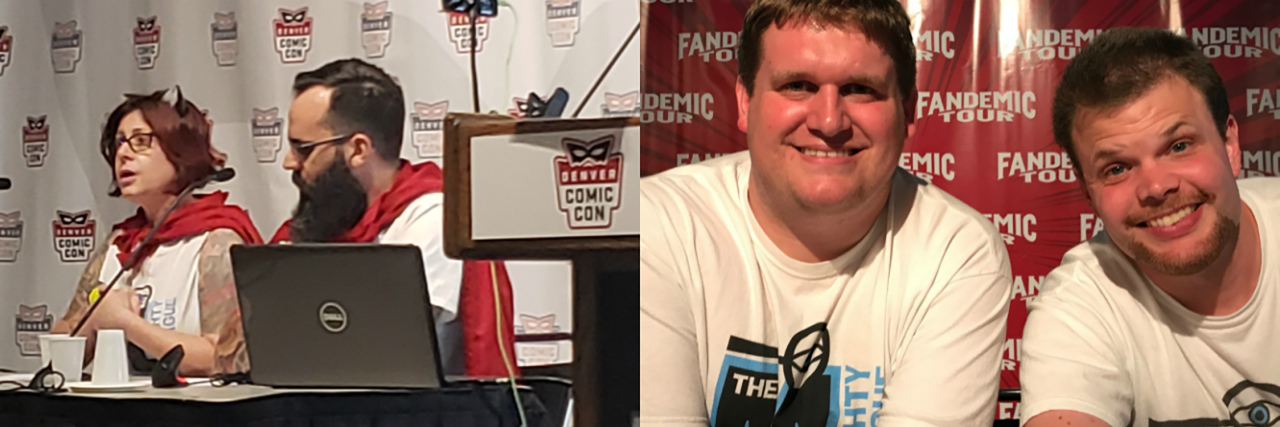Our nonprofit, Geek Club Books, exists to let autistic voices be heard through pop culture and storytelling. There are still so many people who really don’t know anything about the autism experience. What little they do know comes from outdated stereotypes in movies or misinformation on the internet. To ignite change, we get our autistic team of contributors out into the mainstream to talk about the autism experience from their perspective.
“We often conspire about how we can tackle the inclusion monster,” said Becca Lory, CAS, BCCS, autistic self-advocate and member of Geek Club Books team. “We know that advocacy for inclusion and acceptance works best when we can infiltrate mainstream culture.”
We achieved a huge milestone this summer when we were invited to be a part of the programming at comic cons. Imagine, autistic representation on panels! So far, our team has talked to the public about a “Mighty League of Acceptance” at Denver Comic Con and the Fandemic Tour.
Our Comic Con audiences left having an appreciation for all of our roles in the autism community and with a greater understanding of the autistic perspective. Here are five key things we hope our audiences will remember:
Autism is not an out-of-control epidemic.
Autism used to be very rare because it was only diagnosed in children who showed an exact list of challenges. Today the autism spectrum is much broader, ranging from those who need a lot of help to those who need a little extra help in certain areas. It’s not that there are more autistic people, we’ve just gotten better at identifying it.
Autistic people are not all the same.
Autistic people share a few traits, like challenges communicating and relating to other people, but they are unique in every other way. You can find autistic people everywhere — they are athletes, doctors, teachers, actors, Youtubers, counselors, artists, and even moms and dads.
True inclusion means autistics are accepted as fully human.
When we normalize differences in mainstream society, we will finally achieve true inclusion. It’s imperative that we are integrated into society and acknowledged as fully human. Our different brains are equal to all other brains and do not make us lesser than other people.
Fidgets aren’t just a cool trend.
For those of us on the spectrum, fidgets allow for emotional, physical and mental self-regulation. They give us a safe and acceptable way to deal with overwhelming situations and expend our extra energy.
Autistic people really do want to make friends.
If an autistic person doesn’t respond the way you expected, it doesn’t mean they don’t want to be your friend. It takes a lot of effort for many autistic people to interact. They may need a break, a quieter place to hang out, or a different way to communicate (like texting or using a special app). If they seem shy or anxious, keep in mind that they might have been teased or bullied in the past.
Remember — you don’t need special knowledge or skills to be friends with an autistic person. Just be kind, be yourself, and be accepting of others and their differences.
Download our “Hear Our Spectrum of Voices” comic for more on the autistic perspective.
Special thanks to our Mighty League Team of Comic Con panelists and contributors: Becca Lory, Antonio Hector, Jonathan Murphy, James Sullivan and Lydia Wayman.

